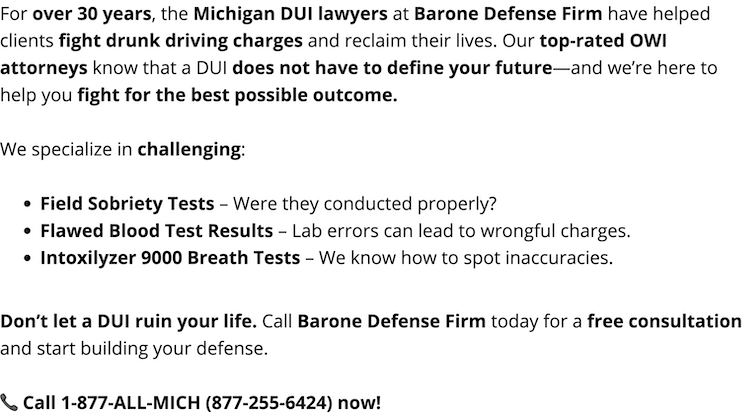Preliminary Breath Testing a DUI Case
The final field sobriety test administered at the roadside prior to a DUI arrest is the preliminary breath test or PBT. Prior to asking you to submit to this test you will be advised of your right to refuse it and the penalty for same. A refusal to submit to a PBT when properly requested by a police officer is a fine only. This civil infraction carries no points and there are no driver license sanctions for refusing.
The PBT is one of the ways the officer will decide whether to arrest you for DUI. In fact, an arrest for DUI can be based on just the PBT results. Most often though the arrest is based on the totality of the circumstances, and the PBT simply confirms what the officer is already thinking, that you are going to be arrested for DUI. You can’t avoid an arrest by refusing the PBT because the officer has probably already decided to arrest you, and even if you blow below the legal limit you can still be arrested. Most of the time therefore there is no benefit to the driving in taking the test.
Because an arrest can be based on only a PBT result, it may be in your best interest to refuse to submit to this test when it is requested. This is especially true in a marginal case, where you do well on the field sobriety tests. Without a PBT your lawyer may be able to challenge the validity of the arrest and have your case dismissed.
Preliminary Breath Testing After a DUI ArrestTypically, if you are found guilty of drunk driving after an arrest at a DUI stop in Michigan, your sentence will include some type of probationary period. During this time, you may be ordered to refrain from alcohol and drug use, which can be monitored through a variety of different means. For example, some probation officers may require you to take a preliminary breath test, also called a PBT, to check for alcohol use.
What is the PBT?The preliminary breath test is taken on a small, hand-held device that is designed to be easily portable. Police officers will often use the PBT during roadside drunk driving investigations to gather the probable cause needed to initiate an arrest.
Much like the evidentiary breath test, the portable breath test device requires a breath sample. When you blow into the machine, a fuel cell oxidizes any alcohol that is present on your breath, which alters the electrical current in the device. Through this process, the machine is supposed to calculate your blood alcohol content (BAC).
ProblemsThe main problem with the preliminary breath test machine is that it can produce highly inaccurate BAC readings. In fact, the results of a PBT that was given during a roadside OWI investigation are not permissible as evidence in trial because the machines are known to produce unreliable results.
Additionally, other molecules besides beverage alcohol can cause the fuel cell to oxidize. This means that a PBT can create false results indicating you've consumed alcohol, when in reality you have not.
What does this mean if you are on probation and are required to submit to a PBT? A flawed test result could lead to a probation violation, which in turn can trigger a number of penalties including potential jail time.
 Barone Defense Firm Home
Barone Defense Firm Home




















